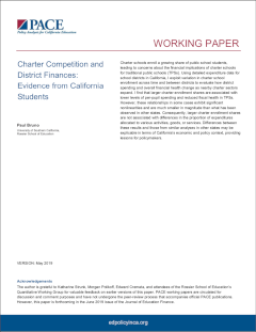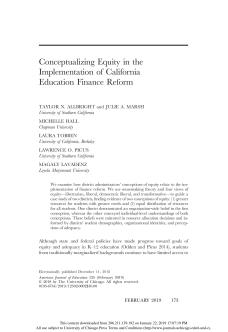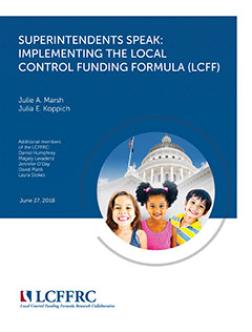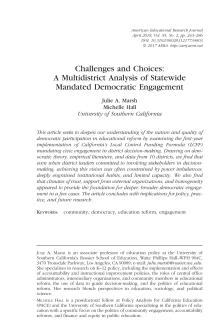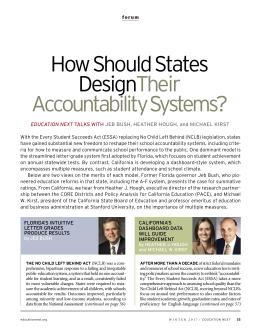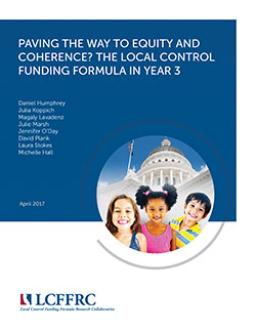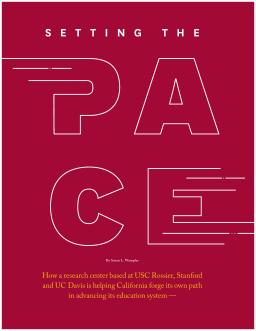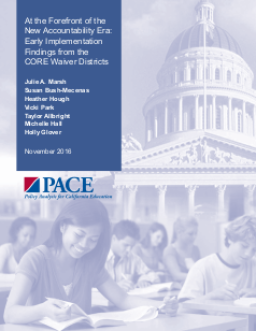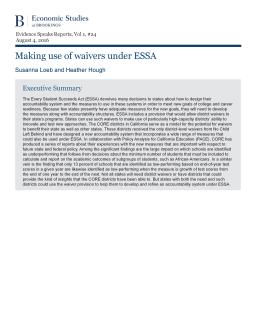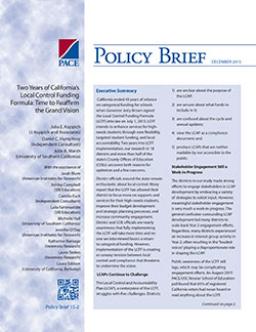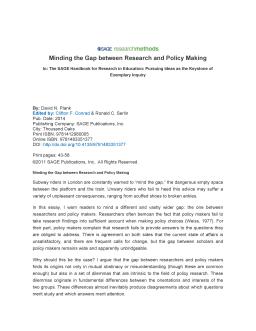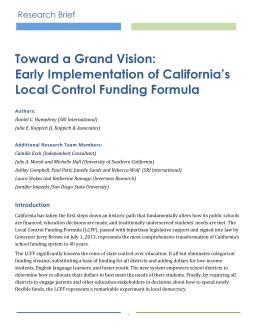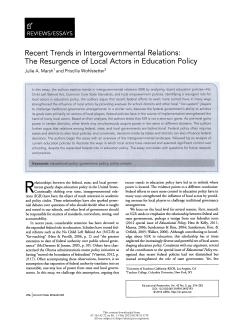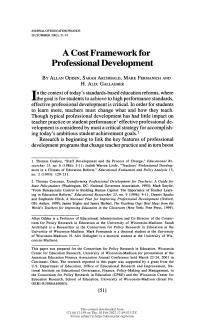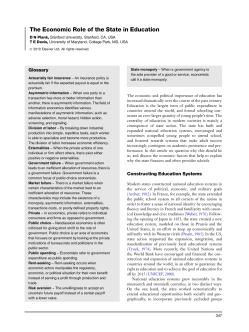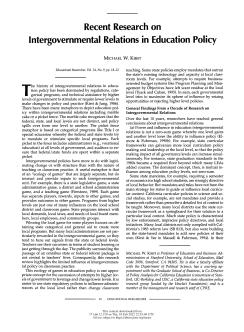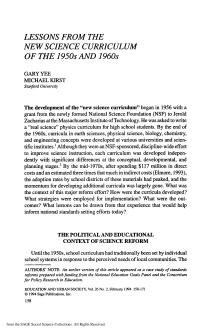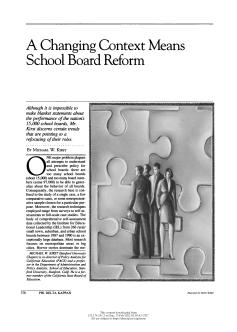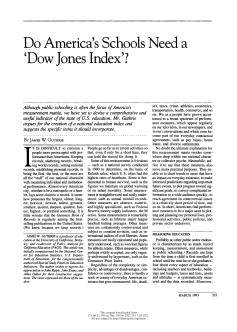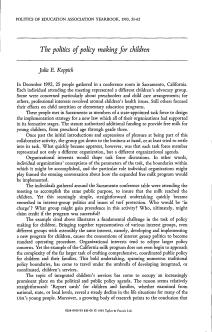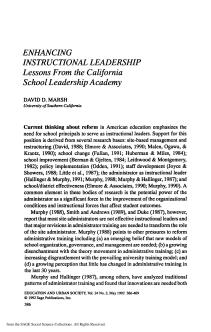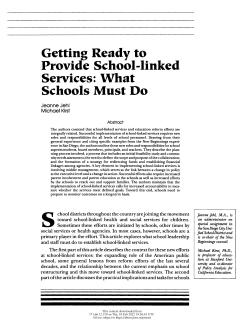Summary
Summary
Summary
Summary
Summary
Summary
Summary
Summary
Summary
California and the US are undergoing a cultural shift in school accountability policies towards locally-determined measures of school performance. Lessons can be learned from the CORE districts, which developed an innovative accountability system, emphasizing support over sanctions, and utilizing multiple measures of school quality. The CORE districts' measurement system and collaboration hold promise for improving local systems, but efforts to build capacity remain a work in progress.
Summary
Summary
The Local Control Funding Formula (LCFF) replaced categorical funding for schools in California in 2013, providing flexibility, targeted student funding, and local accountability. Two years in, research shows optimism and concern. The Local Control and Accountability Plan (LCAP) faces challenges, stakeholders need more engagement, and implementation requires capacity and overcoming the emerging teacher shortage. Public awareness of LCFF lags at 65%.
Summary
The gap between researchers and policy makers is a significant issue. Both sides agree that the current state of affairs is unsatisfactory, but fundamental differences between their orientations and interests inevitably lead to disagreements about which questions merit study and which answers merit attention. The gap finds its origins in intrinsic dilemmas of policy research, making it wide and apparently unbridgeable.
